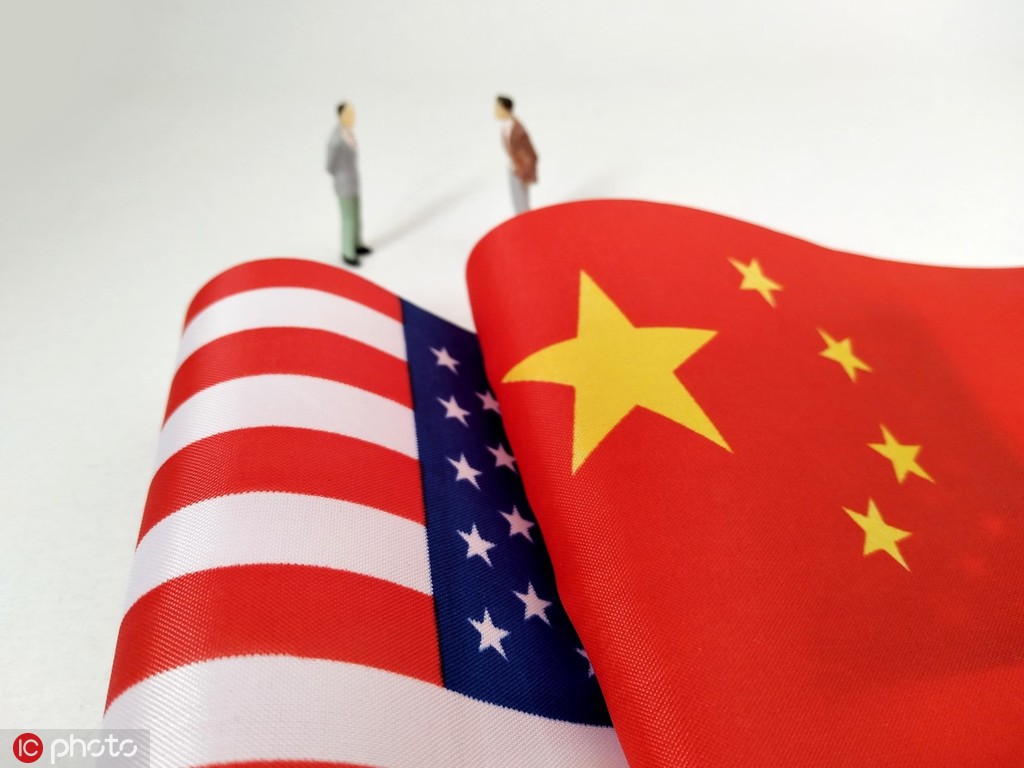Tariff overtures raise optimism of businesses
By ZHAO HUANXIN in Washington | China Daily Global | Updated: 2019-09-13 23:35

Gestures seen as prelude to 'productive' talks
Leading US business groups have said they expect that the latest goodwill gestures demonstrated by the governments of the two countries locked in a protracted trade war would usher in "productive" talks and put an end to tariff increases.
US President Donald Trump announced plans Wednesday to delay a planned tariff increase on $250 billion worth of Chinese imports by two weeks, until Oct 15. China also said earlier in the day that it was exempting 16 types of US products from duties.
This was followed by reports that Chinese firms bought at least 10 boatloads of US soybeans on Thursday, the country's most significant purchases since at least June, Reuters reported.
"We hope this announcement, combined with other confidence-building measures from both governments, will create the conditions necessary for productive trade negotiations and end the cycle of tit-for-tat retaliatory actions," the Washington-based US-China Business Council (USCBC) said in a statement on Thursday.
Late Thursday afternoon, Trump said he doesn't want an interim deal.
"I'd rather get the whole deal done," he told reporters.
Earlier Thursday in Beijing, Chinese Vice-Premier Liu He said in a meeting with USCBC Chairman Evan Greenberg that the entire world looks forward to seeing progress in trade consultations between China and the United States.
The USCBC represents about 200 American companies that do business with China, including some of the world's best-known brands.
Liu said that working groups of both sides will meet next week and have "earnest discussions" on the trade balance, market access, protection of investors and other issues of common concern, according to a Xinhua report.
Greenberg said the US business sector does not want to see a rise in tariffs, and hopes that the two countries will solve their differences through consultations and bring bilateral trade back to normal.
The remarks were echoed by USCBC President Craig Allen in Washington.
"Tariffs are a tax on our businesses and consumers — the impact on supply chains and company confidence is clearly hurting the economy," Allen said, adding that unilateral imposition of tariffs makes US companies less competitive in the global arena.
"We urge both sides to work toward eliminating tariffs, realize the concrete progress that is possible today, and build momentum for longer-term negotiations on the most challenging issues," he said.
Jennifer Safavian, executive vice-president of government affairs of the Retail Industry Leaders Association (RILA), said leading US retailers are hopeful the president's gesture of goodwill in delaying the tariff increases will lead to productive talks between the two countries next month.
"A resolution is sorely needed that puts an end to the tariff increases," Safavian said.
RILA represents more than 200 retailers, product manufacturers and service suppliers, which together account for more than $1.5 trillion in annual sales, millions of American jobs and more than 100,000 stores.
"Consumer confidence is the one pillar of strength in the US economy, and the president's tariff strategy is threatening that, as higher prices will be imposed on consumer goods with increased tariffs," Safavian said.
"Negotiating a path forward that puts an end to the erratic tariff increases and provides some dose of certainty to businesses should be the goal for the October trade discussions," she said.
The International Monetary Fund said Thursday that the rising trade and geopolitical tensions have increased uncertainty, taking a toll on business confidence, investment and global trade.
"Our latest estimate is that … the US-China tariffs, including those implemented and announced, could potentially reduce the level of global GDP by 0.8 percent in 2020, with additional losses in future years," IMF spokesman Gerry Rice said at a briefing.
Gary Shapiro, president and CEO of the Consumer Technology Association, also said in a statement Wednesday that increasing tariffs are giving the stock market whiplash, and consumers are getting worried — last month consumer sentiment dropped almost 10 percentage points.
























